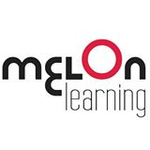Description

Engrade

Learning Suite 360
Comprehensive Overview: Engrade vs Learning Suite 360
Here's a comprehensive overview of Engrade, Learning Suite 360, and Melon LMS, focusing on their primary functions, target markets, market share, user base, and key differentiators:
Engrade
a) Primary Functions and Target Markets:
- Primary Functions: Engrade was primarily a learning management system (LMS) that offered tools for grading, attendance tracking, and classroom management. It aimed to integrate administrative functions with educational resources, including lesson plans, assignments, and assessments, to provide a comprehensive educational technology solution.
- Target Markets: Engrade primarily targeted K-12 schools and districts in the United States, focusing on teachers, school administrators, and students who needed streamlined processes for educational management and communication.
b) Market Share and User Base:
- Historically, Engrade had a modest user base, primarily concentrated in the K-12 education sector, before being acquired by McGraw-Hill Education. Post-acquisition, its features have been integrated into broader educational platforms, affecting its standalone market presence.
c) Key Differentiators:
- Integration with McGraw-Hill: Its acquisition by McGraw-Hill Education allowed it to integrate deeply with McGraw-Hill’s educational content, providing a strong portfolio of resources for its users.
- Focus on K-12: Engrade was specifically designed for the K-12 market, making it a specialist in understanding and catering to the needs of that sector.
Learning Suite 360
a) Primary Functions and Target Markets:
- Primary Functions: Learning Suite 360 is a comprehensive suite offering educational institutions a broad range of functionalities including a learning management system, assessment tools, analytics, and content management solutions.
- Target Markets: It targets a broader educational spectrum, including K-12, higher education, and even corporate training environments, providing scalable solutions adaptable to various educational needs.
b) Market Share and User Base:
- Learning Suite 360 is part of a competitive market with other multi-functional LMS platforms. While it might not be the leader, its user base is growing thanks to the flexibility and comprehensive nature of its offerings suitable for diverse educational settings.
c) Key Differentiators:
- Comprehensive Suite: Unlike stand-alone LMS solutions, Learning Suite 360 offers a full suite that can comprehensively address the needs of diverse educational contexts.
- Scalability and Customizability: Its adaptability across different types of educational institutions and corporate environments makes it a flexible choice for a wide audience.
Melon LMS
a) Primary Functions and Target Markets:
- Primary Functions: Melon LMS is designed to support the delivery, tracking, and management of learning programs in various environments. It focuses on e-learning, supporting course creation, interactive content delivery, and progress tracking.
- Target Markets: While it is applicable to educational institutions, Melon LMS predominantly targets corporate clients, aiming to enhance employee training and development programs.
b) Market Share and User Base:
- Melon LMS has established itself within the corporate sector, where user needs differ significantly from traditional educational environments. Its specific focus allows it to effectively cater to businesses seeking to streamline employee learning processes.
c) Key Differentiators:
- Corporate Focus: Unlike Engrade and Learning Suite 360, Melon LMS is specifically tailored for the corporate training market, offering features that align with business training needs.
- E-learning Emphasis: Its emphasis on e-learning and flexible content delivery positions it well for organizations looking to implement comprehensive digital training programs.
Comparison Summary
- Functionality and Target Market: Engrade focuses on K-12 education, Learning Suite 360 spans across educational and corporate environments providing a full suite solution, while Melon LMS zeroes in on corporate training needs.
- Market Share and User Base: Engrade's presence has diminished post McGraw-Hill acquisition, Learning Suite 360 is versatile with a broad user base, and Melon LMS holds a niche position within corporate E-learning.
- Differentiators: Engrade’s differentiation lay in its integration with McGraw-Hill resources and K-12 focus, Learning Suite 360 offers scalability and customization across environments, while Melon LMS provides specialized corporate e-learning capabilities.
Contact Info

Year founded :
2004
+1 800-305-1367
Not Available
United States
http://www.linkedin.com/company/engrade

Year founded :
Not Available
Not Available
Not Available
Not Available
Not Available
Feature Similarity Breakdown: Engrade, Learning Suite 360
When comparing Learning Management Systems (LMS) like Engrade, Learning Suite 360, and Melon LMS, it's important to note that each product may have evolved since the last available data I was trained on. However, a general comparison based on common LMS features can be outlined as follows:
a) Core Features in Common
-
Course Management:
- All three platforms offer course creation and management tools, allowing educators to publish course materials, manage assignments, and track progress.
-
Communication Tools:
- They provide communication features such as messaging, discussion forums, or announcements to facilitate interaction between students and instructors.
-
Assessment and Grading:
- These systems include tools for quizzes, tests, and assignments with grading capabilities to track and assess student performance.
-
Analytics and Reporting:
- They offer reporting tools that provide insights into student engagement and performance, which help educators identify areas needing improvement.
-
Integration Capabilities:
- These LMS platforms typically support integration with third-party tools and services, such as content repositories, and other educational technologies.
-
User Management:
- They include features for managing user roles (students, teachers, administrators) and permissions, maintaining a structured learning environment.
b) User Interface Comparison
-
Engrade:
- Engrade often opts for a straightforward, teacher-centric interface focusing on ease of use. It emphasizes essential classroom management features, presenting data in a clear and organized manner.
-
Learning Suite 360:
- Learning Suite 360 generally provides a more flexible and customizable interface, aiming to cater to varied educational contexts and styles. Its design is often more modern and visually appealing, focusing on adaptive learning methods.
-
Melon LMS:
- Melon LMS usually features an intuitive, learner-centric design that is user-friendly with an emphasis on accessibility and engagement for both students and educators. The interface is often sleek with a focus on quick navigation and simplicity.
c) Unique Features
-
Engrade:
- Engrade is known for its strong analytics capabilities, particularly in K-12 environments. It offers detailed grade book features that are specifically tailored for interaction with parental portals, making it easier for parents to track student progress.
-
Learning Suite 360:
- This platform tends to stand out with its advanced customization capabilities and adaptive learning technology, enabling the system to tailor the learning experience based on individual student performance and preferences.
-
Melon LMS:
- Melon LMS may offer unique features like enhanced multimedia support, gamification options, and advanced user engagement tools designed to keep learners motivated. It may also have strong mobile support to facilitate learning on the go.
When considering these LMS options, it's essential to evaluate them in the context of specific educational needs, technological infrastructure, and user preferences. This analysis helps ensure that the chosen system aligns with the institution's or organization's learning goals and overall strategy.
Features

Gradebook Management
Attendance Tracking
Student Communication
Assignments and Assessments

Progress Tracking
Personalized Learning Paths
Interactive Content
Accessibility Features
Collaboration Tools
Best Fit Use Cases: Engrade, Learning Suite 360
When evaluating Engrade, Learning Suite 360, and Melon LMS, it's important to consider the specific needs and contexts in which each platform excels. Each of these learning management systems is tailored to meet distinct educational and corporate requirements:
a) Engrade
Best Fit Use Cases:
- Types of Businesses or Projects: Engrade is best suited for K-12 educational institutions. It is designed to integrate smoothly with classroom environments, offering user-friendly gradebook management, student performance tracking, and communication tools between teachers and students/parents.
- Specific Features: Engrade supports curriculum development and provides analytical tools that help educators tailor learning experiences to individual student needs.
- Industry Vertical: Primarily educational institutions, particularly public and private schools looking for a robust, easy-to-use platform for managing classroom activities and student data.
b) Learning Suite 360
Preferred Scenarios:
- Types of Businesses or Projects: Learning Suite 360 is ideal for larger enterprises or academic institutions seeking a comprehensive solution for creating, managing, and delivering courses. It is well-suited for organizations that require integration with other enterprise systems or who have complex e-learning needs.
- Specific Features: Offers extensive customization options, advanced reporting tools, and compliance training, making it favorable for industries like corporate training, higher education, and government sectors that need in-depth course management and analytics.
- Industry Vertical: It caters to both educational and corporate audiences, particularly those requiring robust, scalable solutions for training and education at scale.
c) Melon LMS
Considerations for Choosing Melon LMS:
- Types of Businesses or Projects: Melon LMS is a strong option for small to medium-sized businesses (SMBs) seeking an affordable, straightforward solution for onboarding, training, and continuous development of employees.
- Specific Features: Known for its user-friendly interface and adaptability, it serves companies that need quick deployment and minimal IT overhead.
- Industry Vertical: Particularly popular in industries like healthcare, retail, hospitality, and smaller educational settings where flexibility and ease of use are critical, and extensive customization is not the primary requirement.
d) Catering to Different Industry Verticals or Company Sizes
-
Industry Verticals:
- Engrade targets primary and secondary education schools.
- Learning Suite 360 serves both corporate and academic institutions with comprehensive e-learning and training needs.
- Melon LMS is versatile for SMBs across various industries needing efficient employee training solutions.
-
Company Sizes:
- Engrade is optimized for medium-sized educational institutions looking for streamlined processes.
- Learning Suite 360 is scalable, meeting the needs of large enterprises seeking extensive features, integrations, and support for a wide array of learning activities.
- Melon LMS suits SMBs due to its simplicity and cost-effectiveness, offering essential features without complexity.
Ultimately, the choice between these platforms should be guided by the specific requirements relating to size, industry, and the scale of learning or training initiatives. Each platform provides unique advantages that are best leveraged in their respective environments.
Pricing

Pricing Not Available

Pricing Not Available
Metrics History
Metrics History
Comparing teamSize across companies
Conclusion & Final Verdict: Engrade vs Learning Suite 360
When comparing Engrade, Learning Suite 360, and Melon LMS, it is essential to evaluate various factors such as features, cost, ease of use, scalability, customer support, and customization to determine which product offers the best overall value.
a) Best Overall Value:
Considering all factors, Learning Suite 360 often offers the best overall value for users seeking a comprehensive and feature-rich learning management system. It stands out due to its extensive capabilities and flexible options tailored to various educational and corporate environments.
b) Pros and Cons:
Engrade:
-
Pros:
- User-friendly interface, making it accessible for teachers and students.
- Effective grading and assessment tools, simplifying the educational process.
- Integrates well with existing school tools and data management systems.
-
Cons:
- Limited to mainly educational institutions, lacking functionality for corporate training.
- Feature set may appear basic compared to other comprehensive LMS platforms.
- Fewer customization options for users seeking tailored experiences.
Learning Suite 360:
-
Pros:
- Comprehensive suite of tools suitable for both educational and corporate environments.
- Highly customizable to fit specific organizational needs.
- Robust analytics and reporting tools enhance data-driven decision-making.
-
Cons:
- Might have a steeper learning curve due to its extensive feature set.
- Potentially higher cost compared to simpler systems.
- Could be overkill for smaller institutions not needing extensive features.
Melon LMS:
-
Pros:
- Affordable pricing, making it suitable for budget-conscious organizations.
- Extensive multimedia support, enhancing the learning experience.
- Easy to implement with a straightforward interface.
-
Cons:
- Limited scalability might hinder growing organizations.
- Fewer advanced features and integrations compared to more established LMS.
- Customer support sometimes cited as less responsive or efficient.
c) Recommendations:
-
For Educational Institutions:
- If your primary need is streamlining grading and assessments with a straightforward interface, Engrade may be the way to go.
- For a more robust system that offers extensive customization and analytic tools, Learning Suite 360 would be worth the investment.
-
For Corporate Training:
- Learning Suite 360 is recommended for its versatility and customization options, providing a comprehensive platform for managing both small and large-scale training programs.
- If budget constraints are significant, and the focus is primarily on content delivery, consider Melon LMS as a cost-effective alternative.
-
General Advice:
- Institutions that desire scalability and a future-proof investment should consider Learning Suite 360, especially if advanced features are necessary.
- For smaller organizations or those new to LMS, starting with a more affordable option like Melon LMS could be a prudent choice before potentially upgrading later.
Ultimately, the decision will also hinge on the specific needs and goals of the user, as well as the capacity for investment and desired outcomes from utilizing an LMS.
Add to compare
Add similar companies



